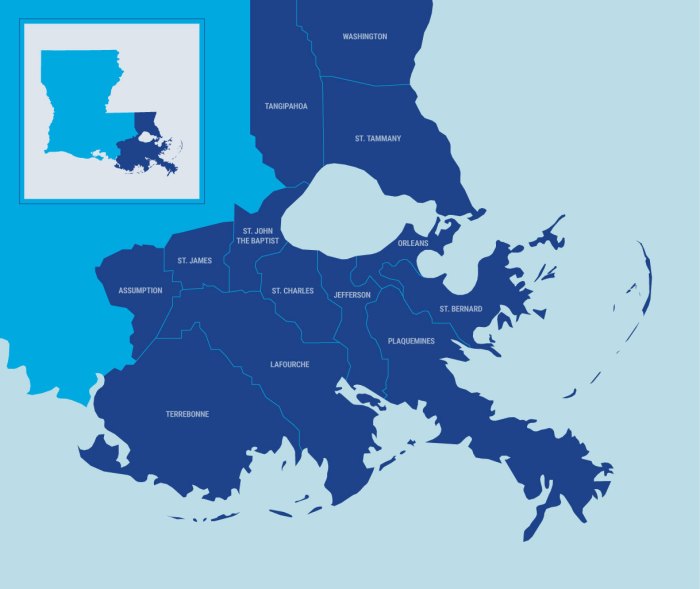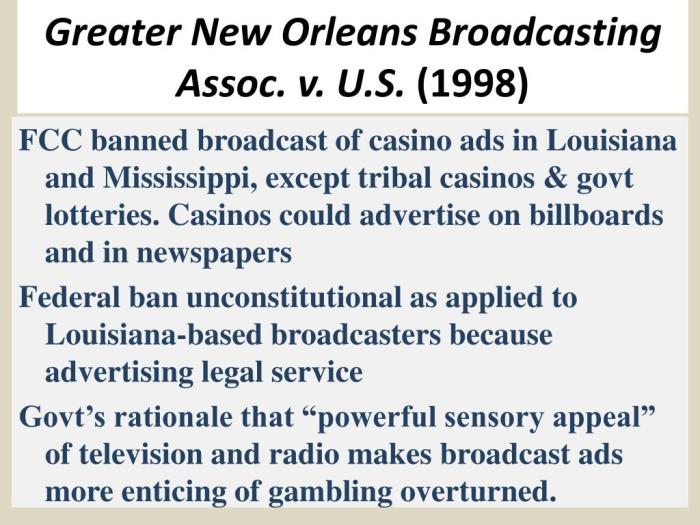In Greater New Orleans Broadcasting Association v. United States, the Supreme Court grappled with the complex intersection of First Amendment rights and government regulation of broadcasting, setting a precedent that continues to shape the media landscape today.
The case centered on the FCC’s ban on indecent broadcasts, raising questions about the government’s authority to restrict speech in the name of protecting the public interest.
Case Summary

Greater New Orleans Broadcasting Association v. United States (1999) involved a challenge to the Federal Communications Commission’s (FCC) ban on indecent broadcasts. The case was brought by several broadcasters who argued that the ban violated their First Amendment rights to freedom of speech and freedom of the press.
The Supreme Court ruled in favor of the FCC, holding that the ban was a constitutional exercise of the government’s authority to regulate broadcasting.
First Amendment Implications

The case raised important First Amendment issues regarding the government’s ability to regulate broadcasting. The Court recognized the importance of freedom of speech and freedom of the press but also emphasized the government’s legitimate interest in regulating broadcasting to protect children and the public interest.
The Court held that the FCC’s ban on indecent broadcasts was a content-based restriction, which requires a strict level of scrutiny. However, the Court found that the government’s interest in protecting children from exposure to indecent material justified the ban.
Regulation of Broadcasting: Greater New Orleans Broadcasting Association V. United States

The FCC is the federal agency responsible for regulating broadcasting in the United States. The FCC has the authority to issue licenses to broadcasters and to enforce regulations regarding the content of broadcasts.
The FCC’s regulations include a ban on indecent broadcasts. Indecent material is defined as material that contains nudity, sexual activity, or offensive language that is patently offensive to prevailing community standards.
Indecency and the Public Interest

The concept of indecency in broadcasting is a complex and evolving one. The FCC’s definition of indecency has been challenged in court on several occasions, and the Supreme Court has upheld the FCC’s authority to regulate indecent broadcasts.
There are strong arguments both for and against regulating indecent broadcasts. Those who support regulation argue that it is necessary to protect children from exposure to harmful material. Those who oppose regulation argue that it is a form of censorship that violates the First Amendment.
FAQ Guide
What was the legal issue at stake in Greater New Orleans Broadcasting Association v. United States?
The case involved the FCC’s ban on indecent broadcasts, raising questions about the government’s authority to restrict speech in the name of protecting the public interest.
How did the Court balance First Amendment rights with the government’s interest in regulating broadcasting?
The Court held that the government’s interest in regulating broadcasting must be balanced against the First Amendment rights of broadcasters and the public’s right to receive information.
What impact did the case have on subsequent First Amendment cases involving broadcasting?
The decision in Greater New Orleans Broadcasting Association v. United States has been cited as precedent in numerous subsequent cases involving the regulation of broadcasting and the First Amendment.